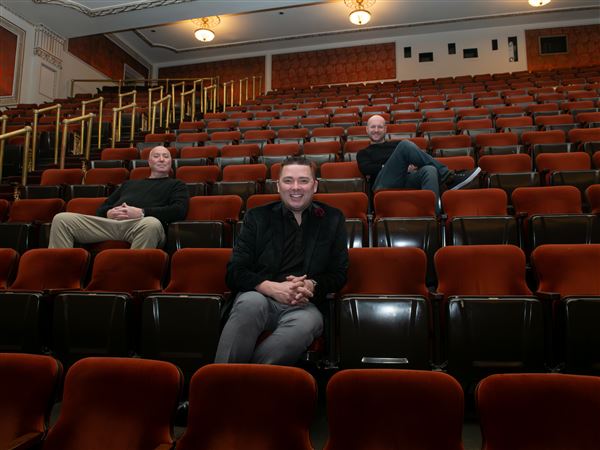WASHINGTON -- A report released Tuesday by the federal Centers for Disease Control and Prevention found that as many as five people died after contracting Legionnaires' disease during stays at one of two Veterans Affairs facilities in the Pittsburgh region over the past two years.
The number of victims, revealed during a tense, 3 1/2-hour hearing of a U.S. House subcommittee looking into the outbreak, is four more than the Pittsburgh VA has ever acknowledged after the outbreak was revealed Nov. 16.
"The recent CDC report shows that the VA has either no idea [what was happening] or was trying to downplay the numbers," Mike Coffman, R-Colo., chairman of the House Veterans Affairs subcommittee on oversight and investigations, said during his opening statement at the hearing. "The deaths of five veterans is not to be downplayed."
Mr. Coffman later said that he believes the VA engaged in a "cover-up" and VA officials are "all protecting each other because they all have fingerprints all over this."
But that wasn't the only new information Tuesday about the case, which quickly has risen in three months from what the VA tried to portray as a supposedly minor outbreak that merely sickened four people, into a national scandal that has grabbed the attention of not only the House Veterans Affairs Committee, but the Senate, and the VA's inspector general.
The CDC investigation also found that the Pittsburgh VA hospital's laboratory sometimes took as long as two days to tell the hospital's infection prevention team about a positive Legionella finding in a patient -- for a disease for which treatment speed is critical -- and the infection prevention team typically did not tell doctors about test results. Both of those actions are violations of the hospital's own protocols.
During testimony from witnesses called before the subcommittee Tuesday, it was also revealed that:
• Michael Moreland, regional director of the VA for the Pittsburgh region, said he first became aware there was a concern with Legionnaires at the Pittsburgh VA in fall 2011, by which time one and possibly two veterans had already died from the disease, and three more would die over the following year.
• Steve Schira, the owner of Liquitech Inc., which sold water treatment systems to the Pittsburgh VA designed to control Legionnaires, said during a visit to Pittsburgh in April, his employees allegedly saw several VA employees falsifying reports about the water treatment system's test results, but Liquitech never told anyone about it at the VA and VA officials would not confirm the allegation.
• Mr. Schira also said during the same visit that Liquitech employees were told by Pittsburgh VA administrators that the water treatment system wasn't being properly maintained because the one person the VA had who operated the system best was out of work on disability -- even though VA protocols require that a VA hospital always have two people available who are highly trained in operating the system.
• Kathleen Dahl, a VA nurse and president of the local union that represents many of the Pittsburgh VA employees, said before she left to come to testify Tuesday, that the associate director of the Pittsburgh VA, Lovetta Ford -- who was not at the hearing and could not be reached Tuesday -- allegedly told her she could say she was "sick" and didn't have to attend the hearing, an act some subcommittee members called witness intimidation.
• Lauri Hicks, an epidemiologist who heads the CDC's Legionnaires team, said the outbreak beginning in 2011 seemed to coincide with major building projects at the Pittsburgh VA, possibly causing stagnant water in new or disabled lines that allowed Legionella to thrive and overwhelm the water treatment system.
Still, none of that was as surprising to two daughters of one of the veterans who died after contracting Legionnaires, as a statement from the hearing's first witness, Robert Jesse, principal under secretary for health for the VA, who said: "We express our deepest regrets to the families of the victims."
Kathy Neumann, daughter of John Ciarolla, 83, a Navy veteran who died after contracting Legionnaires in Pittsburgh, traveled from Toronto to attend the hearing with her sister, Maureen Ciarolla of Monroeville.
While the VA may have finally expressed its regret to the families, the three administrators the VA sent to the hearing infuriated subcommittee members throughout the two hours they were to testify, refusing to answer direct questions and, because none of them were on-the-ground employees at the Pittsburgh VA, unable to answer other specific questions.
At one point, Mr. Coffman loudly and repeatedly asked Dr. Jesse to respond to the question of whether the outbreak could have been prevented, but Dr. Jesse refused, continuing to say several times that it was "complicated."
When Phil Roe, R-Tenn., asked Dr. Jesse, whose office is in Washington, D.C., why he was at the hearing and not some of the Pittsburgh VA employees who actually worked on the outbreak, Dr. Jesse answered: "There was a huge number of people involved" and he was selected to represent them.
VA officials said the VA tried to do all it could to stop the spread of Legionella, including testing and retesting, adjusting its water treatment system, and doing eradication efforts of the Legionella bacterium by heat-and-flushing the water pipes. None of it truly worked until the system was hyper-chlorinated in November, they said, and the Legionella was brought under control.
First Published: February 6, 2013, 5:00 a.m.
















